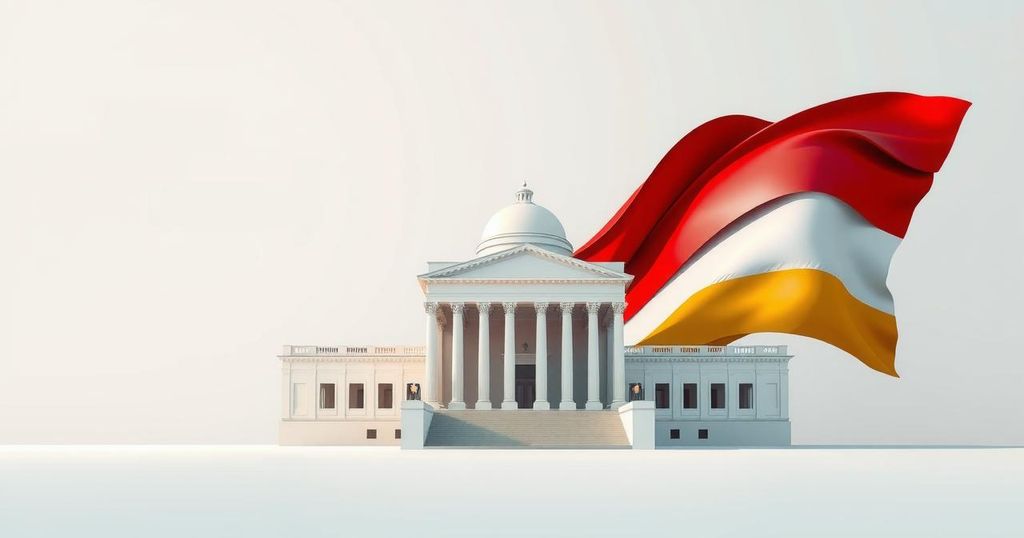Cameroon: Another Potential Term for Paul Biya Amidst Political Challenges

In the lead-up to the Cameroonian elections scheduled for later this year, President Paul Biya, 91, is expected to run for an eighth term. Critics highlight concerns regarding his health and ability to govern effectively, pointing to rising civil unrest and economic challenges. Despite this, fragmented opposition parties fail to present viable alternatives. Political commentators remain skeptical of the sincerity of support for Biya, suggesting profound implications for Cameroon’s democratic landscape and future governance.
As Cameroon prepares for its upcoming elections, President Paul Biya, at 91 years old, is likely to seek an eighth consecutive term, continuing his reign of over 42 years. Political commentator Dr. John Akpo emphasized that there are motions of support from Biya’s party members, indicating strong backing for his candidacy despite concerns regarding his health. The ruling Cameroon People’s Democratic Movement (CPDM) is gearing up for the 2025 elections, as reflected by party member Elvis Ngolle Ngolle’s remarks that discussions of a post-Biya era are premature.
If re-elected, Biya could be 99 years old by the next elections in 2032, raising substantial questions regarding governance due to his age. Some opposition parties appear to be supporting his continued leadership, but Akpo suggests their motives are insincere, describing them as satellite parties of the ruling party that hinder genuine opposition efforts.
Biya is credited with establishing a multi-party democracy and strengthening ties with Western nations; however, his presidency coincides with a civil war led by Anglophone separatists that has stunted economic growth. Tamfu Richard, a lawyer and opposition politician, contends that Biya’s age has impeded his ability to address these critical issues, as he is unable to visit conflict zones directly.
Critics argue that instead of pursuing dialogue, Biya has increased repression against political dissent, resulting in the incarceration of peaceful protesters. Notably, Maurice Kamto, a leading opposition figure, was imprisoned for nine months without charges after the 2018 elections, indicating the government’s strict control.
The CPDM relies on coalition partnerships to maintain its parliamentary majority; however, the two main allies, MDR and UPC, have experienced declining support. Despite poor electoral performance, they remain significant for the ruling coalition to secure legislative control against the backdrop of a rising opposition led by Kamto, viewed as a potential successor to Biya’s leadership.
Recent comments from Catholic bishops regarding political reform have sparked controversy, with calls for better living conditions for the populace. Despite government pushback, ecclesiastic representatives clarified that no resignation requests for the president had been made; instead, they urged for enhanced national welfare and mutual coexistence between state and church.
Cameroon’s economy shows signs of gradual recovery, yet growth projections remain modest. The 2023 GDP growth rate declined to 3.3% due to inflation and internal conflicts, while poverty remains stagnant at 23%. Corruption remains a crucial issue, with severe implications for public welfare and development.
Structural challenges such as poor infrastructure and a reliance on commodity exports persist, necessitating comprehensive reforms for sustainable growth and poverty alleviation. Nevertheless, a divided opposition continues to struggle to present viable alternatives to Biya, thus perpetuating the status quo. Legal activist Michele Ndoki queries Biya’s capability to govern effectively at his age while underscoring the opposition’s ongoing protest against his presidency.
Cameroon has been under the long-term leadership of President Paul Biya, whose potential candidacy for another term raises questions about the implications of his age and the current political environment. The presidency has faced numerous challenges, including civil unrest and economic difficulties. The political landscape is also characterized by a fragmented opposition and dependency on coalition support, complicating prospects for change in governance. This context sets the stage for examining the upcoming elections and Biya’s role in the nation’s future.
As Cameroon approaches its next election, President Paul Biya’s potential candidacy raises critical concerns regarding governance and ability to address pressing national issues due to his age. The fragmented political opposition struggles to unify and present viable alternatives, thereby allowing Biya’s continued leadership to persist despite widespread societal challenges. Ultimately, the political and economic landscape of Cameroon remains precarious in the face of systemic corruption and civil unrest, underscoring the need for comprehensive reforms to achieve sustained improvement.
Original Source: www.dw.com








